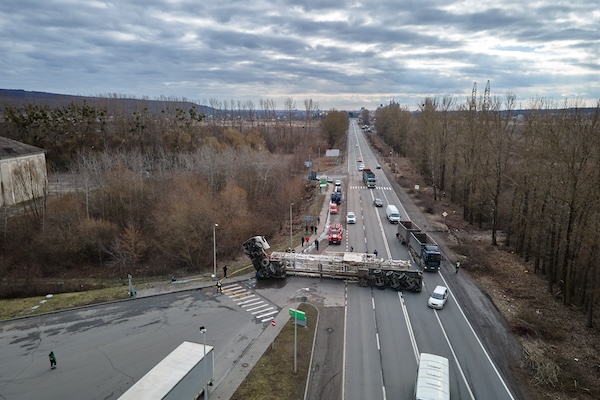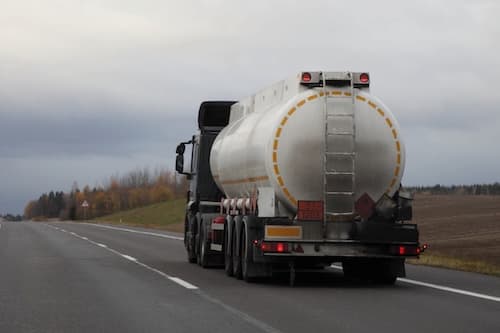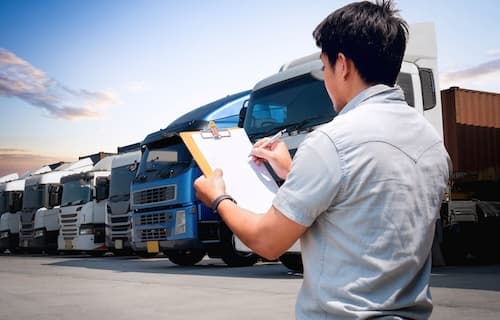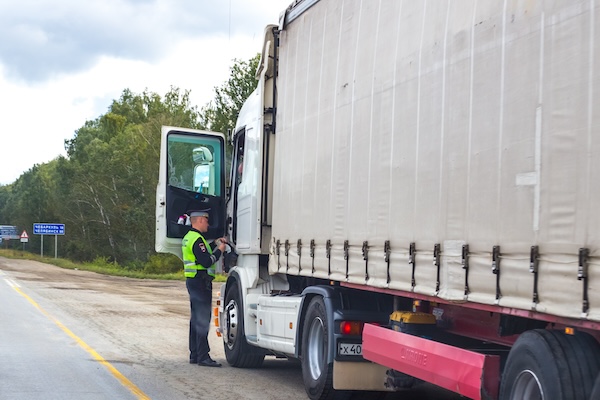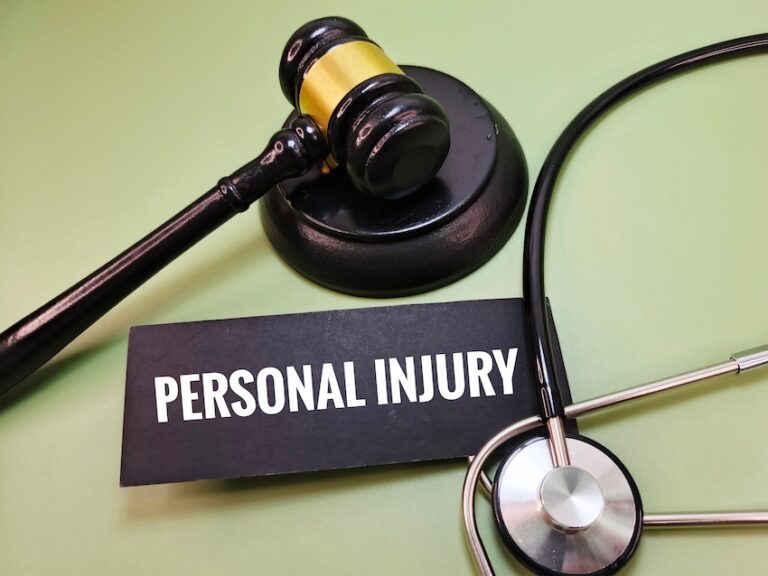Understanding the Complexity of Truck Accidents vs. Car Accidents
When we think about motor vehicle accidents, car accidents typically come to mind. However, truck accidents are often much more complex and dangerous due to the sheer size and weight of the vehicles involved. In many cases, these crashes can result in severe injuries, fatalities, and long-lasting financial and emotional consequences.
If you or a loved one have been involved in a truck accident, it’s crucial to consult with an experienced truck accident lawyer to understand your rights and the legal complexities of such accidents. In this blog, we’ll explore why truck accidents are more complicated than car accidents, examining factors such as the size of trucks, the regulations governing the trucking industry, the types of injuries, and the legal implications.
Scale and Severity of Truck Accidents
One of the most significant differences between truck accidents and car accidents is the scale and severity. Trucks are much larger and heavier than passenger vehicles, which means the consequences of a crash can be catastrophic.
Impact of Large Trucks on Crashes
Truck accidents often result in more severe damage compared to crashes involving smaller passenger vehicles. A large truck can weigh up to 80,000 pounds or more, while the average passenger vehicle weighs about 3,000 pounds. When a truck collides with a smaller vehicle, the impact can cause substantial property damage and result in life-threatening injuries or fatalities for those in the passenger vehicle. In fact, fatal large truck crashes are more common than fatal passenger vehicle accidents due to the sheer size and mass of the truck involved.
Fatal Crashes and Truck Accidents
According to the Federal Motor Carrier Safety Administration (FMCSA), large truck crashes are often associated with a higher rate of fatalities. This is due to the force exerted during a collision and the vulnerability of the passengers in smaller vehicles. Large trucks may also have slower stopping times, making it more difficult for truck drivers to avoid crashes, particularly in high-traffic conditions. Truck accidents often involve not just property damage but devastating personal injuries and even deaths. The damage to the infrastructure itself can also be extensive, leading to significant financial losses and delays in transportation.
Factors Involved in Truck Accidents
Several factors contribute to the increased complexity of truck accidents, many of which are unique to the trucking industry. Let’s take a look at some of these factors in more detail.
Complexities of Large Truck Drivers
Truck drivers are responsible for operating some of the largest and most powerful vehicles on the road. They often drive long hours and cover vast distances, which can affect their performance behind the wheel. The responsibilities of a truck driver differ significantly from those of a passenger vehicle driver.
- Fatigue and Long Hours: Truck drivers often work extended hours to meet tight delivery schedules. This can lead to fatigue, impairing their reaction times and judgment. Driver fatigue is one of the leading causes of truck accidents.
- Training and Licensing: While passenger vehicle drivers are required to have a standard driver’s license, truck drivers must undergo specialized training and obtain a commercial driver’s license (CDL). Despite this, many truck accidents are caused by unqualified or inadequately trained truck drivers, leading to more complex investigations.
Distracted Driving
Like passenger vehicle drivers, truck drivers can also be distracted by their phones, GPS systems, or other in-cab distractions. However, the sheer size and weight of a truck make distractions even more dangerous. Distracted driving often leads to crashes involving large trucks, which are more difficult to avoid due to the truck’s slower response times.
Truck Driver Violations
Truck drivers are subject to strict regulations, including driving hours, rest requirements, and drug testing. However, violations of trucking regulations—such as driving while under the influence of drugs or alcohol, exceeding driving hours, or failing to follow weight restrictions—are not uncommon. These violations can play a significant role in causing truck accidents, making the legal and regulatory landscape around truck accidents more complicated.
Hazardous Materials and Risk
Many large trucks transport hazardous materials, which, when involved in accidents, can create dangerous situations. Crashes involving hazardous materials can result in fires, explosions, or chemical spills, putting both the truck driver and other road users at risk. These types of accidents require specialized legal expertise due to the complexity of handling hazardous material regulations and the heightened risks of these incidents.
Types of Truck Accidents
Truck accidents come in many different forms, each with its own set of challenges for those involved. Let’s break down the most common types of truck accidents.
Jackknife Accidents
A jackknife accident occurs when the trailer of a truck swings out at a sharp angle, creating a V-shape with the cab. This type of truck accident is particularly dangerous because it can block multiple lanes of traffic and cause significant property damage and injuries. Jackknife accidents are a common type of truck accident that require careful investigation, as determining fault can be more difficult than in regular car accidents.
Rollover Accidents
Due to the height and design of many large trucks, they are prone to rolling over during accidents. Rollover accidents often lead to fatalities, especially if the truck tips onto a passenger vehicle. These accidents can occur when a truck driver loses control of the vehicle due to excessive speed, poor weather conditions, or mechanical failure.
Multi-Vehicle Crashes
A truck accident can often involve multiple vehicles. When a large truck collides with several other vehicles, the consequences can be catastrophic. These crashes usually involve more than just the truck and may include passenger vehicles, motorcycles, or pedestrians. Crashes involving large trucks are often more complicated because determining fault may involve several parties, including the truck driver, other vehicles, and even the trucking company.
Single-Unit Trucks and Accidents
While single-unit trucks (smaller trucks without a trailer) are not as large as tractor-trailers, they still pose significant risks on the road. Nonfatal crashes involving single-unit trucks can still result in severe injuries and significant property damage, especially when a driver is negligent.
Role of the Trucking Industry in Accidents
The trucking industry plays a crucial role in preventing and managing truck accidents. Here are some key aspects to consider.
Trucking Company Responsibility
Trucking companies are responsible for ensuring their drivers are properly trained, adhere to regulations, and operate vehicles that are well-maintained. When a trucking company fails in any of these areas, they can be held liable for accidents that occur. The trucking company must also ensure that the cargo is properly loaded and secured to avoid accidents caused by shifting loads or unbalanced vehicles.
Tractor Trailers and Cargo Loading
Improper loading of a tractor trailer can lead to truck accidents, especially if the cargo shifts during transport. Unsecured cargo or improper weight distribution can affect a truck’s stability, making it more prone to tipping over or jackknifing.
Vehicle Maintenance
Proper vehicle maintenance is critical in ensuring truck safety. Mechanical failure due to lack of maintenance can cause a variety of truck accidents. For instance, brake failure, tire blowouts, or engine malfunctions can lead to fatal large truck crashes.
Trucking Regulations
The trucking industry is heavily regulated to ensure safety on the roads. Regulations cover hours of service, maintenance requirements, and vehicle inspection protocols. However, many truck accidents are caused by violations of these regulations, which can make it challenging to navigate the legal landscape following an accident. Trucking regulations are constantly evolving, making it important to consult with a truck accident lawyer who understands the latest laws.
Injuries and Fatalities in Truck Accidents
Truck accidents result in serious injuries and fatalities, often affecting multiple individuals.
Injury and Fatality Rates in Truck Accidents
Statistics show that truck accidents lead to higher rates of injury and death compared to car accidents. This is due to the sheer size of trucks and their ability to cause extensive damage in a collision. While the truck driver may suffer fewer injuries in a crash, passenger vehicle occupants are at a much greater risk.
Nonfatal Crashes vs. Fatal Crashes
Not all truck accidents result in fatalities, but even nonfatal crashes can cause significant injury. In some cases, injuries from truck accidents lead to long-term medical treatment and rehabilitation, adding to the financial and emotional burden.
Truck Occupants and Safety
Truck drivers and truck occupants are not immune to injury in accidents. Although they are generally better protected by the truck’s size, fatal crashes still occur involving the truck driver. Seatbelts, airbags, and cab design all contribute to the safety of the truck driver and any other individuals in the vehicle.
Legal and Financial Consequences
Truck accidents are not only dangerous but also legally complex. Here are some legal aspects to consider.
Truck Accident Liability and Fault
Determining fault in truck accidents is often more complicated than in car accidents. The trucking company, the driver, vehicle maintenance, and even the truck manufacturer could be involved in an accident. Legal experts must carefully examine data sources like vehicle logs, maintenance records, and witness accounts to determine who is responsible.
Insurance and Financial Impact
The financial consequences of a truck accident are much greater than a car accident. Trucking companies typically carry large insurance policies to cover the costs of accidents. However, insurance companies often fight hard to minimize payouts, especially in cases involving fatalities or severe injuries.
Legal Protections for Accident Victims
If you’ve been involved in a truck accident, you have legal rights. Working with a truck accident lawyer can help you pursue compensation for medical expenses, lost wages, pain and suffering, and more.
Preventing Truck Accidents
Prevention is always better than dealing with the aftermath of a truck accident. Here are some ways to reduce the risk of accidents.
Strategies for Preventing Truck Accidents
Better regulations, improved driver education, and enhanced technology (such as automatic braking and GPS monitoring) can help prevent truck accidents. Awareness campaigns targeting both truck drivers and the public are also key to reducing the number of accidents.
Improving Safety for Truck Drivers and Other Road Users
Sharing the road safely with large trucks requires patience and understanding from both truck drivers and passenger vehicle drivers. It’s essential for everyone to adhere to safety guidelines and respect the rules of the road.
FAQ: Everything You Need to Know About Truck Accidents and Legal Help
What should I do immediately after being involved in a truck accident?
If you’ve been involved in a truck accident, the first thing to do is ensure your safety and the safety of others involved. Call emergency services, check for injuries, and if possible, document the scene with photos. It’s crucial to seek medical attention, even if you don’t feel hurt right away, as some injuries from truck accidents may not appear immediately. After receiving medical care, it’s essential to consult with a truck accident lawyer who can help you navigate the legal process, understand your rights, and secure compensation for your damages.
How can a truck accident lawyer help me after a crash involving a large truck?
A truck accident lawyer plays a vital role in managing the complexities of accidents involving large trucks. They can investigate the cause of the crash, whether it’s driver fatigue, improper vehicle maintenance, or violations of trucking regulations. Additionally, a lawyer can help you handle insurance claims, gather critical evidence, and represent you in court if needed. Their expertise ensures that you’re not left with the financial burden of a truck accident caused by another party’s negligence.
What are the common causes of truck accidents and how can they be prevented?
Truck accidents are often caused by factors like driver fatigue, speeding, distracted driving, improper vehicle maintenance, and failure to follow trucking regulations. In many cases, accidents also occur due to poorly loaded cargo or the vehicle being overloaded, leading to jackknife accidents or rollovers. Preventing truck accidents requires strict adherence to safety regulations, regular vehicle inspections, proper driver training, and investment in advanced technology such as automatic braking systems. Public awareness and better infrastructure also play a key role in preventing truck accidents on the roads.
What are the potential injuries and fatalities associated with truck accidents?
Truck accidents can lead to severe injuries or fatalities, particularly for those in passenger vehicles. Due to the size and weight of trucks, fatal large truck crashes can cause extensive damage, often leading to head trauma, broken bones, spinal injuries, and internal injuries. Occupants of passenger vehicles are more likely to suffer life-threatening injuries compared to truck drivers, as the trucks’ sheer size often crushes smaller vehicles. In cases involving hazardous materials, the risk of explosions or chemical exposure increases, making these accidents even more dangerous.
How is fault determined in a truck accident, and who can be held liable?
Determining fault in a truck accident can be complicated due to the multiple parties involved. A truck accident lawyer will investigate all aspects of the accident, including the truck driver’s actions, the condition of the truck, and the trucking company’s responsibility for maintenance and training. Fault can lie with the truck driver, the trucking company, or even the manufacturer of the truck or trailer if a defect caused the crash. In cases of improper vehicle maintenance or failure to follow regulations, the trucking company may be held liable for the accident, as they are responsible for ensuring that their fleet is safe and compliant with industry standards.
What types of compensation can I receive after a truck accident?
If you’re injured in a truck accident, you may be entitled to compensation for medical expenses, lost wages, pain and suffering, and property damage. Truck accident lawyers work to ensure that you receive compensation that covers your immediate and long-term needs, including any future medical treatments, rehabilitation, or therapy. In cases of wrongful death, surviving family members can also pursue compensation for their loss, covering funeral expenses, emotional distress, and the loss of financial support.
Can I still claim compensation if the truck driver is at fault but has limited insurance coverage?
Yes, even if the truck driver has limited insurance coverage, there may be other ways to pursue compensation. Trucking companies are required to carry large insurance policies that cover their drivers’ actions while on duty. If the driver’s insurance is insufficient, a truck accident lawyer can explore other avenues, such as seeking compensation through the trucking company’s policy, or in some cases, personal injury claims against additional responsible parties. They may also pursue a claim against the manufacturer if a defective part caused the accident.
What role does vehicle maintenance play in truck accidents?
Vehicle maintenance is a critical factor in preventing truck accidents. Poorly maintained trucks can experience brake failures, tire blowouts, and engine malfunctions, all of which can lead to dangerous accidents. Large trucks require regular inspections and servicing to ensure that they meet safety standards. If a truck accident was caused by mechanical failure due to poor maintenance, the trucking company or service provider responsible for the upkeep of the vehicle could be held liable for the accident.
How do trucking regulations impact truck accidents and safety?
Trucking regulations are in place to ensure the safety of truck drivers, other vehicles on the road, and the public. These regulations cover everything from driver hours of service to vehicle weight limits and mandatory rest periods. When trucking companies or drivers violate these regulations—such as by allowing drivers to work excessive hours or by overloading their trucks—it significantly increases the risk of accidents. Enforcement of these regulations is essential to reducing the frequency of truck accidents and ensuring that large trucks are operated safely.
How long do I have to file a claim after a truck accident?
The timeline for filing a claim after a truck accident varies depending on the jurisdiction and the specifics of your case. Generally, you have a limited time to file a claim, known as the statute of limitations. In most states, this period ranges from one to three years from the date of the accident. It’s important to contact a truck accident lawyer as soon as possible to ensure that evidence is preserved and deadlines are met, giving you the best chance of a successful claim.
Get the Legal Help You Need After a Truck Accident
If you or a loved one have been involved in a truck accident, navigating the legal complexities can be overwhelming.
Contact Ross Moore Law today for expert guidance and support. 404-445-8122
Our experienced truck accident lawyers are here to help you get the compensation you deserve. Don’t wait—your recovery starts with a consultation!

